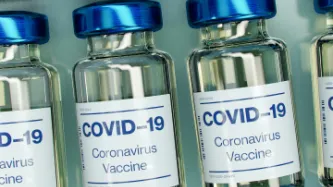Advanced Search
Content Type: News & Analysis
In a ruling handed down on 14 October 2021 by the High Court of Kenya in relation to an application filed by Katiba Institute calling for a halt to the rollout of the Huduma card in the absence of a data impact assessment, the Kenyan High Court found that the Data Protection Act applied retrospectively.
Background to the case
Huduma Namba as initially proposed
In January 2019, the Kenyan Statute Law (Miscellaneous Amendment) Act No. 18 of 2018 came into effect, introducing a raft of amendments…
Content Type: News & Analysis
After almost 20 years of presence of the Allied Forces in Afghanistan, the United States and the Taliban signed an agreement in February 2020 on the withdrawal of international forces from Afghanistan by May 2021. A few weeks before the final US troops were due to leave Afghanistan, the Taliban had already taken control of various main cities. They took over the capital, Kabul, on 15 August 2021, and on the same day the President of Afghanistan left the country.
As seen before with regime…
Content Type: Long Read
In May 2019, the UK Department for Work and Pensions (DWP) – the department in charge of welfare – published their two-part staff guide on conducting fraud investigations. Privacy International went through the 995 pages to understand how those investigations happen and how the DWP is surveilling benefits claimants suspected of fraud.
Anyone who has flipped through a tabloid will have seen articles exposing the so-called “benefits-cheats,” people who allegedly trick the benefits systems for…
Content Type: Long Read
Back in 2019, we read through a 1000-page manual released by the UK Department for Work and Pensions (DWP) describing how they conduct investigations into alleged benefits fraud. While out in the open and accessible to anyone, the guide turned out to be a dizzying dive into a world where civil servants are asked to stand outside someone’s door to decide if they are indeed single or disabled and have to be reminded that living together as a married couple is not an offense. The guide – which…
Content Type: Long Read
This report is available in English.
La mayoría de los documentos nacionales de identidad y demás documentos emitidos por autoridades estatales incluyen un marcador de género. Estos marcadores suelen recibir el nombre de “marcador de sexo” aunque este término no sea preciso. La presencia de dichos marcadores, especialmente en los certificados de nacimiento, promueve el énfasis de nuestra sociedad en el género como criterio de asignación de identidades, roles y responsabilidades sociales. Al…
Content Type: Long Read
Este informe está disponible en español.
Most national ID or identifying documents include a gender marker. This is often known as a 'sex marker,' even though the term is inaccurate. The presence of such markers, especially on birth certificates, contribute to our society’s emphasis on gender as a criterion for assigning identities, roles and responsibilities within society. With gender being such a determining and dominant identifier, it puts it at the centre of so many arrays of our…
Content Type: Long Read
As we see Covid-19 vaccination programmes beginning around the world, for the first time since the start of the pandemic there seems to be a light at the end of the tunnel as the fruition of truly unrivalled global scientific efforts has given us hope of saving lives, reopening our societies, and going back to “normal”.
This great moment of hope must not be seen opportunistically as yet another data grab. The deployment of vaccines, and in particular any “immunity passport” or certificate…
Content Type: Long Read
All around the world people rely on state support in order to survive. From healthcare, to benefits for unemployment or disability or pensions, at any stage of life we may need to turn to the state for some help. And tech companies have realised there is a profit to be made.
This is why they have been selling a narrative that relying on technology can improve access to and delivery of social benefits. The issue is that governments have been buying it. This narrative comes along with a…
Content Type: News & Analysis
In the last few weeks, the UK government has announced various new measures to ensure that crossings across the Channel were “inviable” including by appointing a new role of “clandestine Channel threat commander" and further plans to deploy the navy to stop migrants from crossing to the UK from France across the Channel. Premature plans it seems, as not only would such measures be contrary to the UK’s international obligations to allow individuals to seek asylum in the UK, but also since such…
Content Type: News & Analysis
New technologies continue to present great risks and opportunities for any users but for some communities the implications and harms can have severe consequences and one of the sectors facing increasing challenges to keep innovating whilst protecting themselves and the people they serve is the humanitarian sector.
Over the course of engagement with the humanitarian sector, one of our key observations has been how risk assessments undertaken in the sector omitted to integrate a hollistic…
Content Type: Long Read
This week saw the release of a coronavirus tracking app within the United Kingdom, initially to be trialled in the Isle of Wight. Privacy International has been following this closely, along with other ‘track and trace’ apps like those seen in over 30 other countries.
The UK’s app is no different. It is a small part of a public health response to this pandemic. As with all the other apps, it is vital that it be integrated with a comprehensive healthcare response, prioritise people, and…








